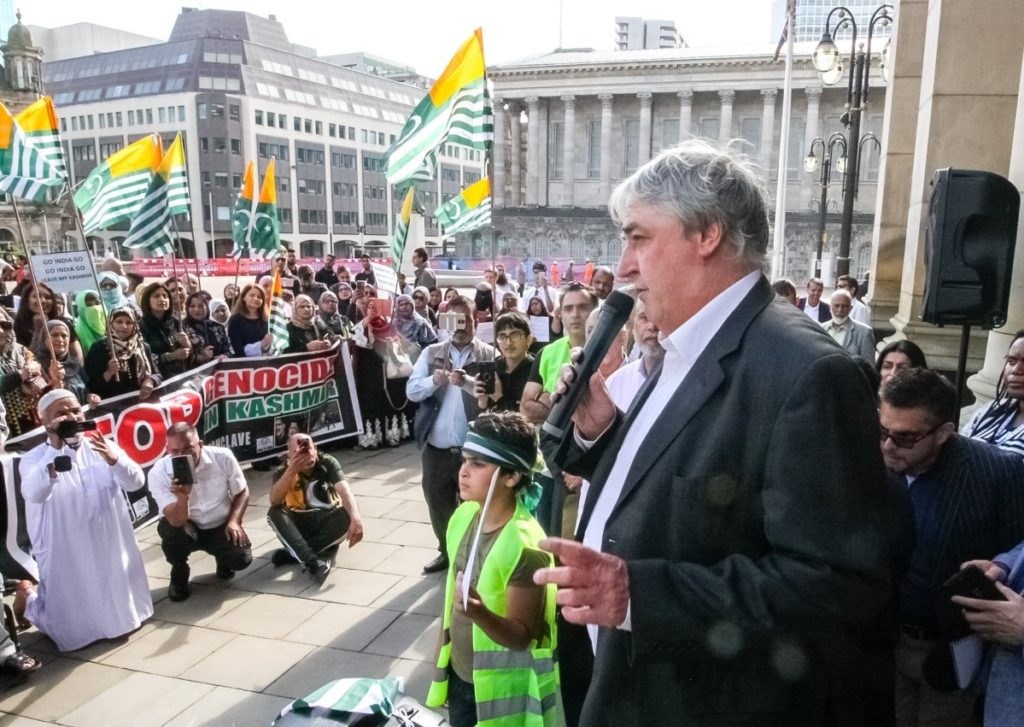A month has passed since India unilaterally revoked the autonomous status of the parts of Kashmir under its control and shut down their connections with the outside world. The reaction of the international community, including the EU, to the curfew and humanitarian situation in Kashmir, has been soft.
2,000 Kashmiris of all strata of the population have reportedly been rounded up and often sent to prisons in India without being charged for anything. The humanitarian situation is worsening, with a shortage of food and medicines.
The New York Times (26 August) describes an Indian plan which was set into motion already last year when the state assembly in Kashmir was dissolved, a governor was appointed by Delhi and general elections were indefinitely postponed.
After the revocation of the special status of the two Indian-administered territories Jammu and Kashmir, they are now directly ruled by Delhi under a heavy military presence. Their status is even inferior to the states that make up India and that enjoy self-government with their own legislative assemblies and elections.
“It was no coincidence that India decided to revoke the status of Kashmir in August when parliaments around the world were in recess and there was no-one in EU who could react,” said British MEP Phil Bennion (Liberal Democrat) at a press briefing at Press Club Brussels on Monday (2 September) organised by the Kashmir Council - EU.
In fact, EU did react on 8 August when its foreign policy chief Federica Mogherini phoned to the ministers of foreign affairs of India and Pakistan and urged the two countries to solve the long-standing dispute between them through political dialogue.
But Bennion thinks that EU´s response – albeit without denouncing India’s actions or proposing to mediate in the conflict - was the result of an open letter sent to Mogherini by him and 8 other European parliamentarians on the previous day expressing their concerns about the situation in Kashmir.
“For seven decades the people of Kashmir have endured hardship and silence of the rest of the world,” says the letter. “We urge you to immediately condemn any use of violence and call for restraint.”
“We furthermore urge you to seek ways for the European Union to engage with all regional actors to mediate a solution to this long-standing crisis. To continue ignoring the human tragedy and the soaring tensions is neither tenable nor justifiable.”
Asked yesterday about EU´s position on Kashmir, a spokesperson said that EU is following the situation closely and that Mogherini had met India’s foreign minister last week. “It’s important to avoid any escalation of tension and steps need to be taken to restore the rights and freedoms of the population in Kashmir.”
Phil Bennion and fellow MEP Shaffaq Muhammed, who also spoke at the press club, were satisfied that the first point on the agenda of the European Parliament’s Foreign Affair Committee on Monday was the situation in Kashmir. “It should send a strong signal to India”.
However, the foreign affairs committee ended without any resolution and no official minutes were taken from the meeting.
Both MEPs represent up to 100,000 Kashmiri immigrants in their constituencies in the UK and feel that they must give them a voice and call out the humanitarian situation in Kashmir. Shaffaq Muhammed arrived in the UK as a child from Kashmir.
“In UK, the Kashmir issue is considered as a bilateral issue. But India refuses to discuss the issue and regards it an internal matter,” Bennion said. Asked by The Brussels Times what EU could do, besides phone calls, he replied that it should put pressure via the United Nations and use its economic leverage on India.
“Changing the status of Kashmir was an illegal act. The curfew must be lifted. Political prisoners must be released. Human rights organisations need to have access to Kashmir. Talks on the long-term future of Kashmir should start,” he summarised.
At the press conference, Muhammed Farooq Haider Khan, the Prime-Minister of Azad Kashmir, said the conflict is not a land dispute between Pakistan and India and that Pakistan always has recognised UN as a partner in solving the conflict. Azad Kashmir is a self-governing territory in the part of Kashmir controlled by Pakistan.
He warned against refugee flows that might affect Azad Kashmir. While not mincing his words about India’s actions, he assured that the Kashmiri people only wants to be allowed to vote about its future, as was foreseen when Kashmir was divided in 1947. “Revoking India’s decision on Kashmir’s status would be a first step towards normalisation.”
M. Apelblat
The Brussels Times

